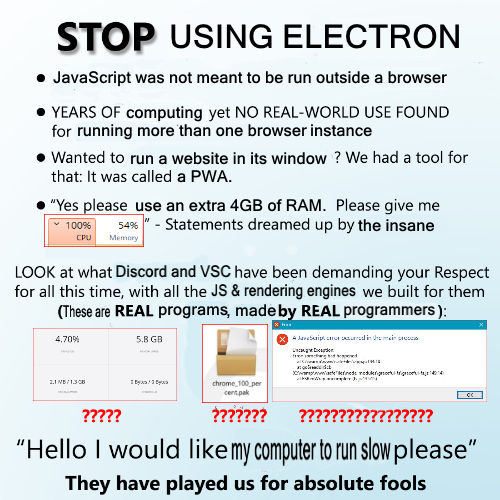What's the deal with Modern Web Design?
Written: 2024-01-01 · Last Updated: Never
(Yes in a Jerry Seinfeld voice)Can y'all seriously not even be the slightest bit creative? Or even code by the principles you preach?
Yeah okay minor rant warning.
Here's the Squarespace landing page. A personal hatred of mine. And it's not just Squarespace – it's everyone. I'll just launch right into it:
Gripe #1: EVERY Website Looks like This
The oh-so-classic mid-late 2010s website design: fullscreen image banner, scroll down for section blocks with text next to an image, footer hidden down somewhere, navbar embedded as part of the banner.
This. Is. Terrible! Why‽ I understand the aesthetic of a page is subjective but when you start to see it on every personal/business website for literally 8 years now, I think it becomes time to complain. Just a bit.
For fun, I checked out Squarespace's design templates page. Am I surprised? No. Not even in the slightest. They all follow the same pattern! Image-based header that fills 100% of the viewport height after page load, and then scroll down for a bit of text with an image next to it because obviously you don't have the attention span to read 50 words.

Let's have a look at Wix's designs. I used these guys back in 2016 because you could get a website for free and I didn't know how to code then. (Trust me, what I made wasn't pleasant). These designs aren't as bad, but they're designed in a way that reminds me a lot of the ever-rising prevalence of JS these days on websites and the absolute pain and suffering said trend has brought with it. Despite their greater uniqueness, the Wix designs are also pretty bog standard, boring, and common – if not slightly more 2020s than 2010s like Squarespace. It's still the same bold screen-filling banner, then scroll for garbage.
Side-note: I swear it's like footer height is tied to net worth of the company/person who owns the site. Apple and Microsoft have 3 layers of footer that fills over a whole screen. Wix and Squarespace aren't any different either. Even the most bloated of personal blog sites can struggle to hit half a page even counting webring links, badges, and socials. Often, navigating corporate websites is near impossible without footer links, and making these footers abhorrent to use is not a help to the end user.
Another thing with these sites is that they are just unresponsive full stop. Just because your site has a hamburger menu for when the screen is portrait does not mean that it is responsive! Okay, well in a web design theory standpoint yes it does, but in practice it's awful. Take inset left: Squarespace at 30% zoom. I don't want your banner to take up 100vh on my screen!!! Learn how to scale a damn image and maybe even (scary for you modern web devs I know so beware!:) pick up an object-fill property! Boo!
Gripe #2: Why JS?
Now that I've launched the web devs out of their chairs like a cat seeing a cucumber, I should probably mention my biggest issue with modern web development and kind-of the driving passion behind this semi-coherent "article:" JavaScript, JavaScript Frameworks, and JavaScript Libraries.
For the uninitiated, JavaScript is the reason why your phone loads pages slow, it's the reason why your computer loads pages slow, it's the reason why things don't show up right. It's the reason why you sometimes need to reload a page after loading it initially because for some reason stuff didn't show up the first time; it's the reason your phone slows down when trying to scroll on a webpage; it's the reason why your browser crashes on your PC.

JavaScript is what all web developers seem to come back to. You really just need to run your website on NodeJS server thisthat with Angular, React, Vue, or whatever the Hell has emerged from the deepest pits of fire for us to all "enjoy" this time. Each framework built to be better than the last because the last one sucks. They all suck man!
Not only are you adding like 13 MiB to a 12 KiB page download, making pages take 10 times longer to load, but then after that you're slowing down their devices by eating tens of megabytes of RAM! For a webpage‽ Do you know how much a megabyte is? You need over a MILLION? Get outta here.
Can you tell how incoherent I've become?This site uses JavaScript. It loads in HTML elements using JS. However, instead of importing 678 libraries all depending on each other to do a simple thing, I (jumpscare warning!) coded it all myself. And bonus: all of the code runs and executes on DOM load complete – as in it loads in all of the content in JS before the page is even done rendering! Seamless for the user! After that it quits: no need for RAM!
Gripe #3: Why change?
Okay, maybe this is a bit more of a personal thing – but the saying "If it ain't broke, don't fix it" exists for a reason. Some of the site redesigns I've seen are honestly just a shame. Redesigns seem to always be slow, arduous, disjointed, inconsistent, inconvenient – you get the point.
Apple's Remebering Steve Jobs page is still their (vaguely) 2013 style, including the old font. Reddit's modern site still uses the old.reddit 404 page. The Facebook services directory uses their – aw man, it has got to have been 10 years since I've last seen that – site design.
Sometimes, a change isn't needed. Just 'cause your site looks 3 years old doesn't mean it's bad; heck, a site that looks 15 years old is fine. That might be pushing it for the general public who see older-styled sites as less legitimate or less reliable/out-of-date. You can easily push a 5-, 6-, or maybe 7-year-old site design out today however and have it stand perfectly fine.
Bonus Gripe: Why Preach Instead of Teach?
I deliberately tried to make the title of this section sound like one of these things. If you've ever been on StackOverflow you know what they are. Those dedicated sites to some subset of programmer doctrine that instead of answering your question or giving any useful advice to you, you get linked some www.getscrewedyoushitprogrammer.com domain (dontasktoask.com, nohello.com, xyproblem.info, etc are a few examples). Some of the times (like the examples I gave) there is generally good practice and commonsense hidden in there. Sometimes not. My main gripe is the majority of mainstream programming help sites these days will do 1 of 3 things:
- Link you a useless site, comment about refusing to answer your question because XYZ screw you novice, this doesn't match ABC guideline [on SO], or this is a duplicate (when it clearly isn't and wouldn't hurt anyone if it got answered)
- (In the case of web development:) Recommend 1-3 JS libraries to achieve an incredibly mundane task that can either been done in 1-3 lines of JS code (no jQuery or Node/React in sight) or that can be achieved using pure HTML/CSS – which, by the way, will always be faster.
- Answer something completely unrelated to your question just so it looks like they helped even though they suggested a solution more applicable to fish farming than to programming
To you "programmers," (if you yourself even do), the ones who overcomplicate and oft ruin any joy to be associated with computing – I deliver you thus:
fuck you
royally.